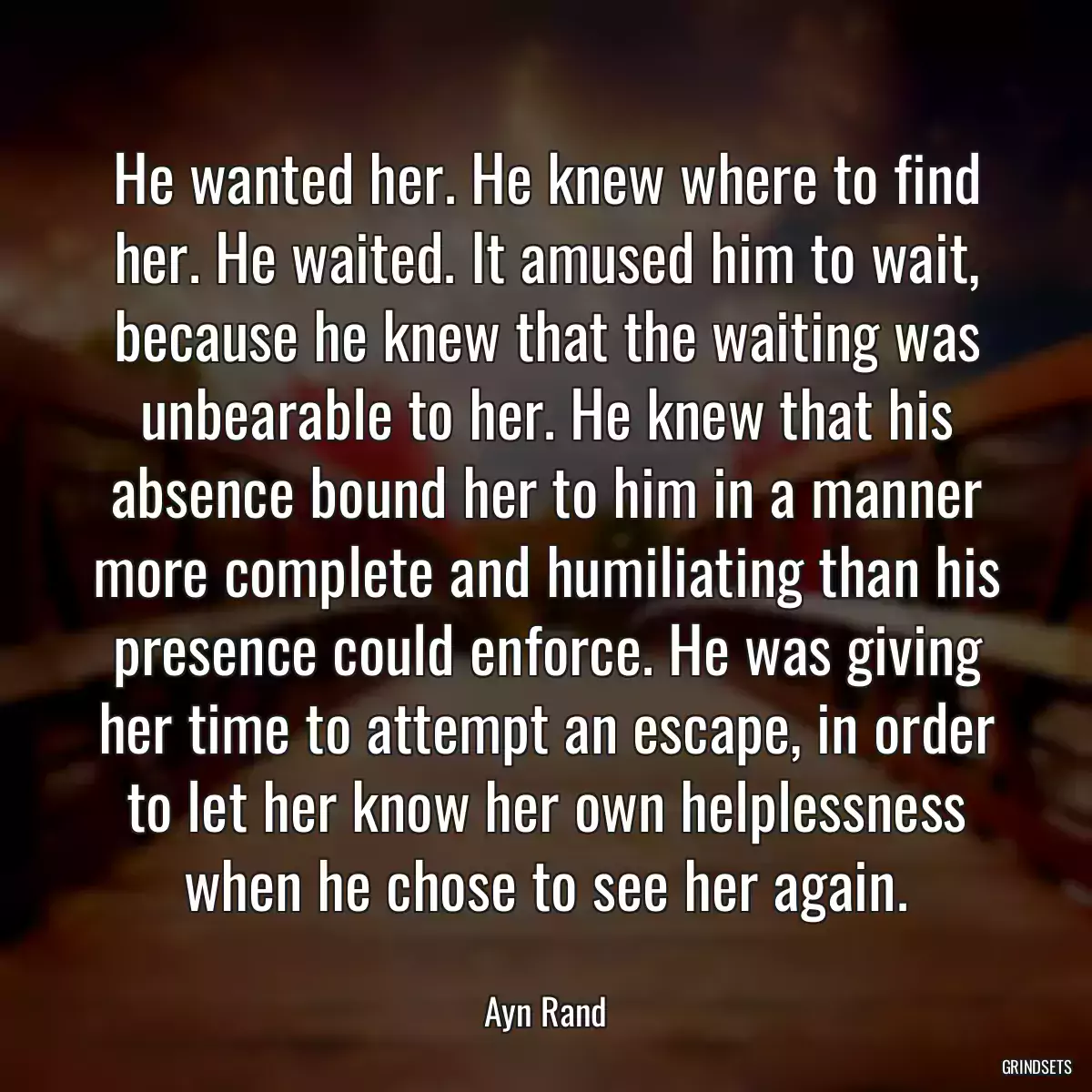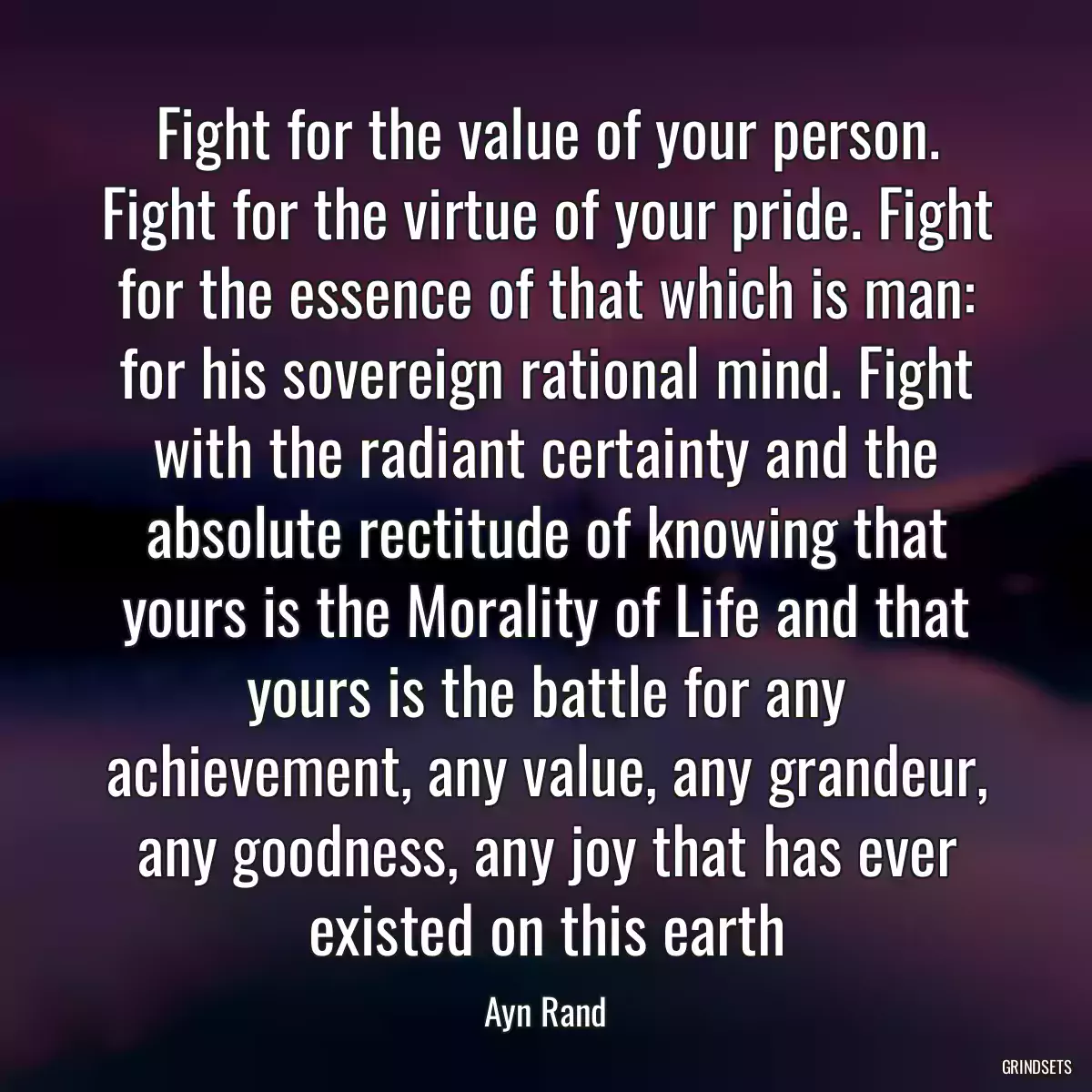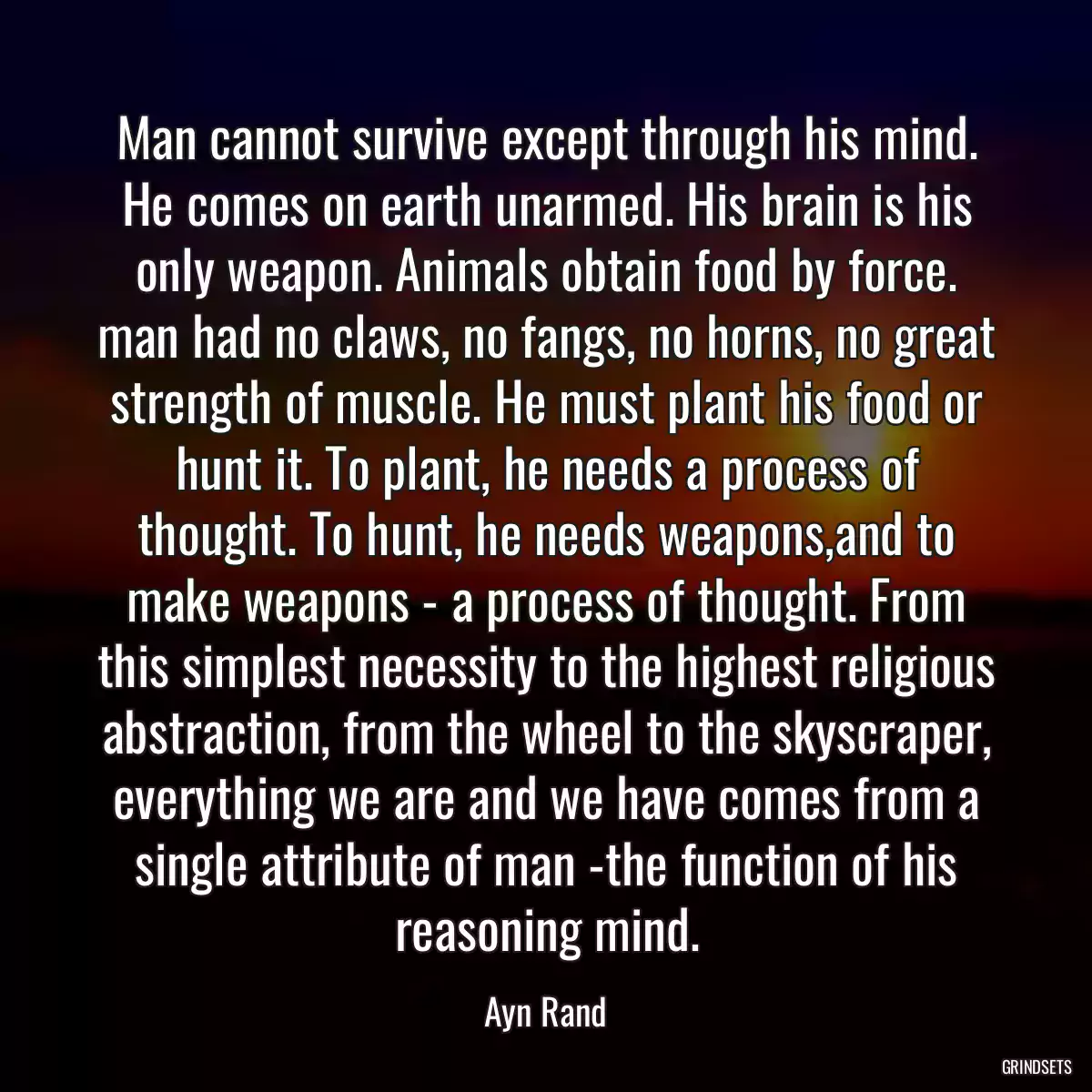
He wanted her. He knew where to find her. He waited. It amused him to wait, because he knew that the waiting was unbearable to her. He knew that his absence bound her to him in a manner more complete and humiliating than his presence could enforce. He was giving her time to attempt an escape, in order to let her know her own helplessness when he chose to see her again.

